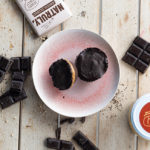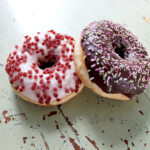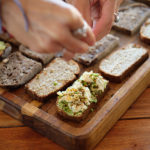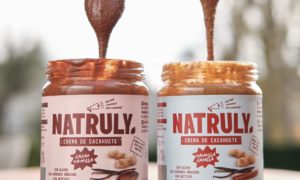Estimated reading time: 2 minute(s)
Do you think you need sugar for energy? Do you still believe that sugary breakfast foods will help you get through the day better? There is a lot of misconception about sugar as a source of energy that has been promoted by industrial food companies for a long time. But, don’t believe it! What could be beneficial in some cases (never necessary) is glucose, but not sugar.
It’s key to learn the differences between these two terms.
Glucose vs Sugar
Glucose helps many of our vital functions: it is a source of energy that we can find in fruits and vegetables,two food groups that we always recommend.It is also present in legumes and cereals, although these foods should not be consumed too much due to their high carbohydrate content.
What is often referred to as common “sugar” is actually sucrose (glucose + fructose) and not only does it not benefit you in any way but it actually does harm. Yea, you read that right! To metabolize sugar, the body pulls nutrients, minerals (especially magnesium, chromium, calcium, zinc …), and vitamins (especially vitamin B) away from your body. So by consuming sucrose we are losing all those nutrients and gaining a whole bunch of problems in the process.
In society today there are many people who have pathologies that are associated with the loss of these nutrients due to excessive sugar intake:
- When we lack vitamin B, we may suffer from nervous system disorders, depression, irritability and have a hard time concentrating…
- A lack of calcium weakens bone density
Is dairy really good for bone health?
We’ve heard hundreds of times that yogurt and other dairy are good for bone health, but that’s not always the case. Sometimes too much dairy can weaken the bones. You may be wondering, how is that possible?
It happens because sugar steals calcium from the bones thus making them weaker. This is why it’s important to choose dairy products without sugar, added flavors, sweeteners, and so on.

Early morning hypoglycemia
After a few hours of fasting, blood glucose levels drop, which may be why many people decide to eat sweet foods like pastries, industrial cookies, or cereal for breakfast.
Warning! It’s important to raise your glucose levels correctly and choosing the right breakfast is very important. Here are two examples of the effects different breakfasts have on the body:
- Orange juice, cookies, and some coffee with a splash of milk and sugar: sugar quickly enters the bloodstream causing a glycemic spike, which will drastically drop energy levels after a few hours (known as “hypoglycemia“). We saw the effects of this in the first post.
- An Omelete with avocado, a whole orange and some oatmeal: the protein and fiber in these foods cause glucose to slowly enter the blood stream and avoid spikes.
Although many of us associate freshly squeezed orange juice as part of a healthy breakfast, it’s sadly not true. And the reason is because of the type of sugar that is produced by orange juice. Let’s dive deeper!

Kinds of Sugar
Orange juice contains a lot of sugar, has a higher caloric intake and has much less nutritional value than eating a whole orange. It is less filling and according to many studies, flows through the bloodstream quicker. Think about how easy it is to drink the juice of 3 oranges compared to simply eating them whole!
An orange on its own has intrinsic sugar: it’s inside the orange and is mixed with other very interesting compounds such as fiber, vitamins, minerals, antioxidants… Chewing the fruit makes it feel more satiating.












